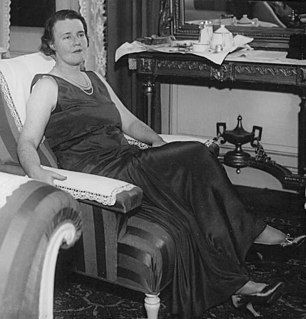A Quote by Zainab Salbi
Historically speaking, religious and conservative groups always wanted the control over the private sphere that impacts women most, as reflected by family law and women's access to resources and mobility. And often secular groups traded this for economic incentives and trade.
Related Quotes
There'd been studies over the years supporting the proposition that groups composed exclusively of women usually made intelligent decisions, that exclusively male groups did a bit less well, and that mixed groups did most poorly of all, by a substantial margin. It appeared that, when women were present, testosterone got the upper hand and men took greater risks than they might otherwise. Correspondingly, women in the mixed group tended to revert to roles, becoming more passive, and going along with whatever misjudgment the males might perpetrate.
The goal of this office will not be to favor one religious group over another - or even religious groups over secular groups. It will simply be to work on behalf of those organizations that want to work on behalf of our communities, and to do so without blurring the line that our founders wisely drew between church and state.
Hackman's paradox: Groups have natural advantages: they have more resources than individuals; greater diversity of resources; more flexibility in deploying the resources; many opportunities for collective learning; and, the potential for synergy. Yet studies show that their actual performance often is subpar relative to "nominal" groups (i.e. individuals given the same task but their results are pooled.) The two most common reasons: groups are assigned work that is better done by individuals or are structured in ways that cap their full potential.
In my opinion, the battles over birth control and Planned Parenthood are primarily neither political nor religious. This is an issue of equality for women. This is an issue of women's rights: Planned Parenthood is the most important private provider of reproductive health care for women in the United States.
For most of modern life, our strong talents and desires for group effort have been filtered through relatively rigid institutional structures because of the complexity of managing groups. We haven't had all the groups we've wanted, we've simply had the groups we could afford. The old limits of what unmanaged and unpaid groups can do are no longer in operation.





































